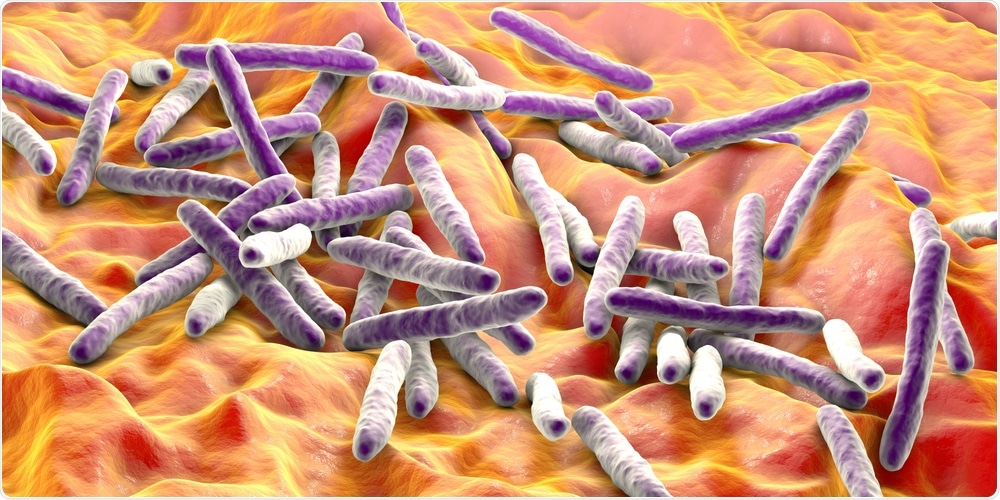Mycobacterium tuberculosis is remarkable because it can live in the human host for decades. This is accomplished by varying the diet to effectively steal nutrients from the human host, including immune cells; it is known to obtain and consume several carbon sources from the body through infection.

Mycobacterium Tuberculosis. Image Credit: Kateryna Kon/Shutterstock.com
Surrey scientists describe how they calculate the flow of metabolites or “fluxes” across metabolic pathways as Mycobacterium tuberculosis consumes some of its favorite nutrients in a paper published in the journal Molecular Systems Biology.
Measuring these “fluxes” could aid scientists in developing new tuberculosis drugs as well as understanding why the bacterium lasts too long in humans and why existing antibiotics are often unsuccessful.
Surrey scientists were able to calculate the speed of the chemical processes that the bacterium utilizes to convert the host’s nutrients into new bacteria by growing Mycobacterium tuberculosis in specific bioreactors that enable the growth rates and environmental conditions to be tightly regulated, and then examining the resulting data with cutting-edge, bespoke computing.
By calculating these metabolic fluxes, scientists can determine which reactions are essential for the bacteria’s growth and thereby guide the design of new tuberculosis drugs to efficiently destroy the bacterium.
Surrey scientists Dr. Khushboo Borah, Dr. Tom Mendum, Professor Johnjoe McFadden, and Dr. Dany Beste worked together on the study.
The decline of tuberculosis deaths in recent years is positive news. However, the current Covid-19 pandemic is estimated to set back TB control decades and therefore we urgently need novel treatments. Our basic science study advances our understanding of the metabolism of this pathogen which can ultimately be capitalized in developing more effective tuberculosis drugs and accelerate progress towards eliminating this infection globally.”
Dr Dany Beste, Study Lead Author and Senior Lecturer, Microbial Metabolism, University of Surrey
Source:
Journal reference:
Borah, K., et al. (2021) Metabolic fluxes for nutritional flexibility of Mycobacterium tuberculosis. Molecular Systems Biology. doi.org/10.15252/msb.202110280.